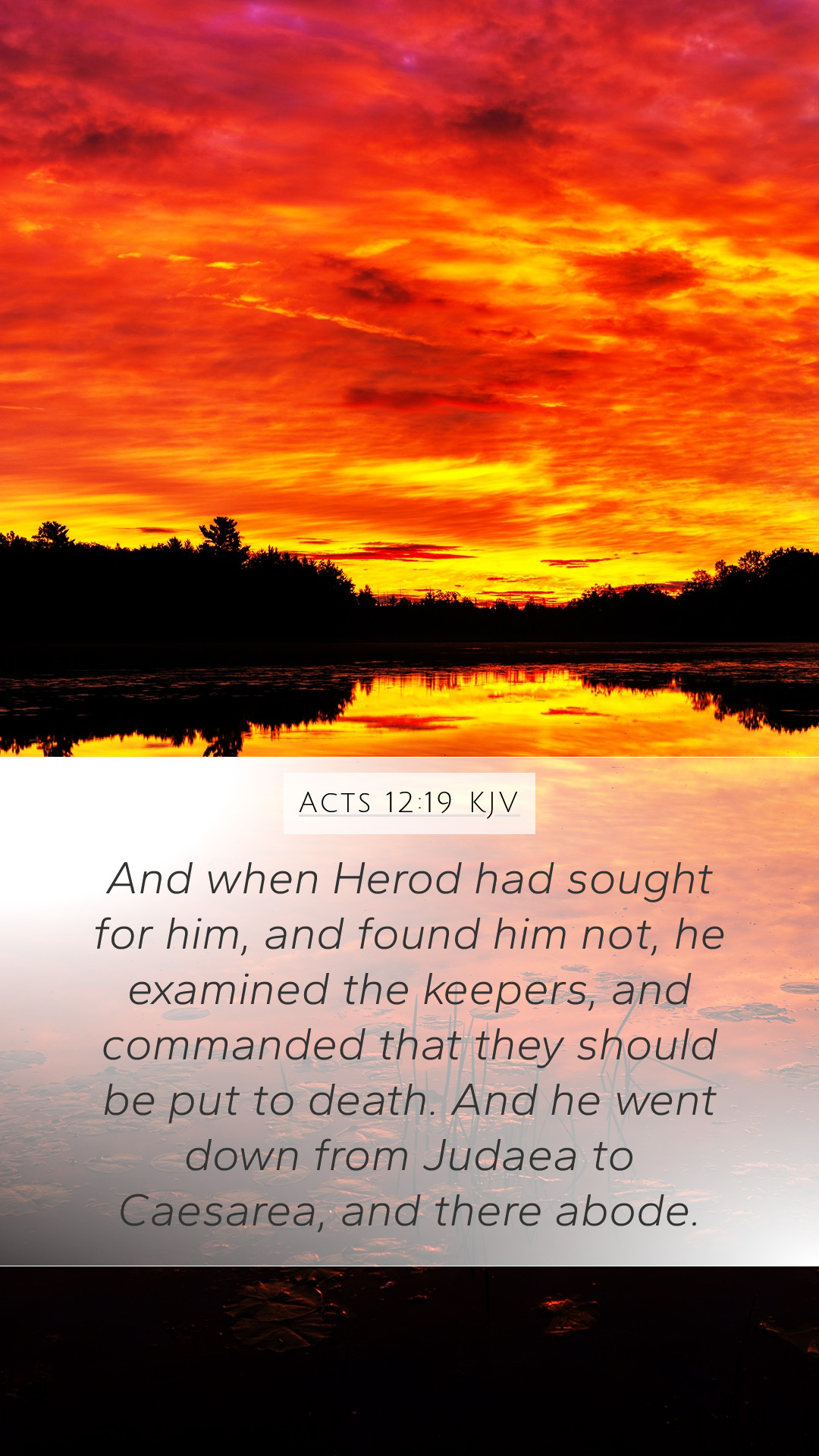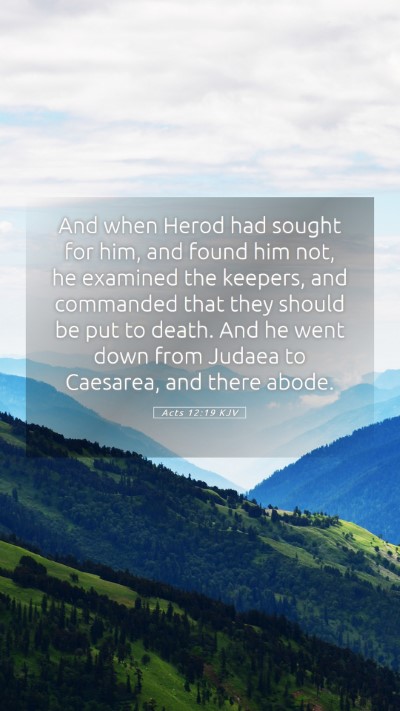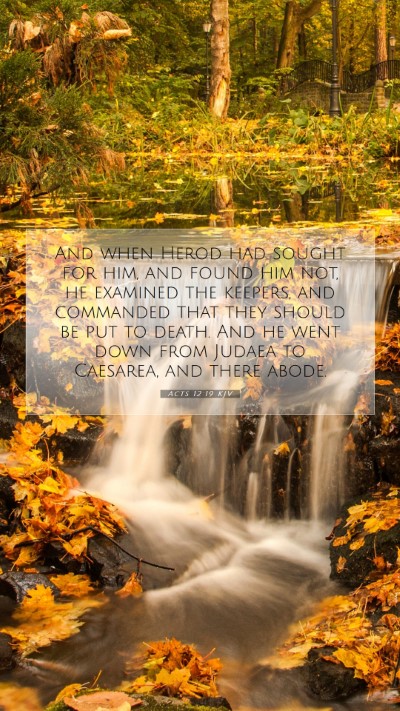Old Testament
Genesis Exodus Leviticus Numbers Deuteronomy Joshua Judges Ruth 1 Samuel 2 Samuel 1 Kings 2 Kings 1 Chronicles 2 Chronicles Ezra Nehemiah Esther Job Psalms Proverbs Ecclesiastes Song of Solomon Isaiah Jeremiah Lamentations Ezekiel Daniel Hosea Joel Amos Obadiah Jonah Micah Nahum Habakkuk Zephaniah Haggai Zechariah MalachiActs 12:19 Meaning
What is the meaning of Acts 12:19?
And when Herod had sought for him, and found him not, he examined the keepers, and commanded that they should be put to death. And he went down from Judaea to Caesarea, and there abode.
Acts 12:19 Bible Verse Meaning
Bible Verse Meaning: Acts 12:19
Acts 12:19 narrates a significant moment in the life of early Christians, centering around the imprisonment of Peter and God’s miraculous deliverance. This verse reads:
"And when Herod had sought for him, and found him not, he examined the keepers, and commanded that they should be put to death. And he went down from Judea to Caesarea, and there abode."
Summary of Insights
This verse, as interpreted by various public domain commentaries, showcases the relentless pursuit by King Herod, underscoring his cruelty and the grave consequences faced by those who failed him. Commentators draw on several themes which provide a deeper understanding of the text.
Key Themes
- Herod's Authority and Cruelty: Herod's actions illustrate his tyrannical nature. Matthew Henry notes that he was a ruler who ruled with an iron fist, and this unjust treatment of the guards who failed to keep Peter represents the larger context of coercion in his reign.
- Divine Intervention: Albert Barnes emphasizes the aspect of divine providence in the preceding events leading to Peter's escape, which points to the ongoing protection God provides for His followers.
- Consequences of Failure: Adam Clarke remarks on the severe punishment meted out to the keepers, showcasing the high stakes involved when one opposes God’s plan. It also reflects the importance of faithful execution of duty.
- Historical Context: The passage also highlights the contrast between the reign of Herod and the burgeoning Christian movement, a recurring theme in the Book of Acts where God’s mission prevails against oppressive regimes.
Understanding the Verse
In understanding Acts 12:19, it is essential to consider the historical and theological implications:
- Political Climate: The political tension between Jewish leaders and the early Church is palpable in this narrative, where Herod's actions may have been aimed at gaining approval from the Jewish populace.
- Role of Fear: The fear of God’s power is a backdrop to the terror instilled in Herod's heart, showing that even kings must reckon with the authority of the Almighty.
- Theology of Persecution: This verse offers insight into the broader themes of persecution within early Christianity, emphasizing that opposition often leads to greater evidence of God’s sovereign plan being unveiled.
Applications for Today
Acts 12:19 holds relevance for modern believers through its teachings on fearlessness amidst persecution, understanding divine purpose in dire situations, and practicing faithfulness in one's assigned duties irrespective of the challenges faced.
Cross References
This verse can be understood in light of several other scriptural references which enhance its meaning:
- Matthew 10:28: The call to fear God over man emphasizes the significance of divine accountability.
- Acts 5:29: "We ought to obey God rather than men," reinforces the theme of submitting to God’s authority over worldly rulers.
- 1 Peter 5:10: Highlights suffering for Christ’s sake and the restoration that follows.
Conclusion
In conclusion, interpreting Acts 12:19 through a biblical commentary lens offers multi-dimensional insights into the narratives of power, faith, and divine purpose. For Bible study groups, online Bible study, and those seeking Bible study tools, this verse serves as a poignant reminder of God's sovereignty and the enduring strength of His followers against adversity.
The study of this passage reflects how to interpret Bible verses meaningfully, encouraging the understanding of historical contexts and their applicability to daily life as Christians navigate contemporary challenges.


